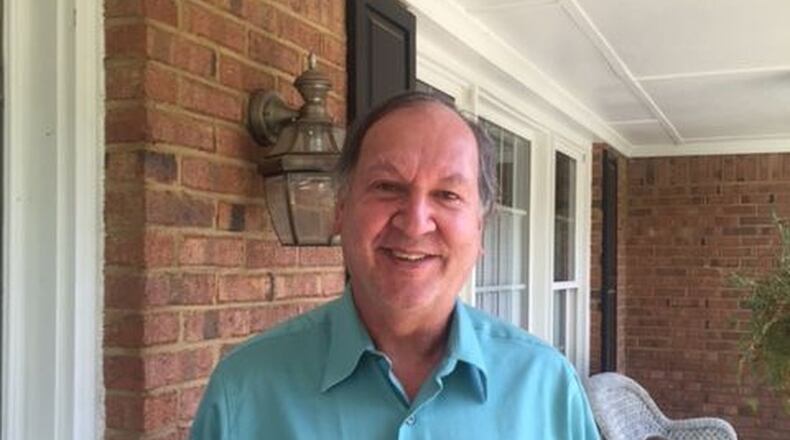Sexual offenses in Georgia’s public schools
State data show an increase in recent years in the number of incidents reported by schools in three categories: sexual offenses, sexual harassment and sexual battery.
The state’s Education Department defines sexual offenses as includes sexting, groping, indecent exposure or engaging in sexual activity on school grounds. Sexual harassment includes unwanted advances or inappropriate jokes of a sexual nature. Sexual battery includes rape and child molestation.
Here’s a breakdown of how many sexually-related offenses Georgia school districts have reported during the last three school years.
Category 2014 2015 2016
Sexual Offenses 4,329 4,316 4,675
Sexual Harassment 2,627 2,614 2,677
Sexual Battery 217 109 126
Source: Georgia Department of Education.
What’s next?
Gwinnett County District Attorney Danny Porter asked his staff about two weeks ago to review the case. The findings may be released in a few weeks.
The U.S. Education Department is investigating a complaint filed by the girl’s representatives that the Gwinnett County school system violated her civil rights by the way it handled its investigation. The complaint was filed in August 2015.
They were once high school classmates, frequently exchanging text messages in the months leading to a fateful meeting at Gwinnett County’s Peachtree Ridge High School in February 2015 that changed their lives.
A few weeks later, the two students sat in the same room, giving vastly different accounts about a sexual encounter between them.
The girl said it was not consensual. The boy said it was.
The case shows the minefields school districts face when investigating such claims, which state data show are being reported more frequently. Gwinnett’s school district, which has officers empowered to make arrests, handled the investigation with some assistance from the county district attorney’s office.
The incident, once in the shadows, has received public attention in recent weeks as Gwinnett prosecutors review the case to see if charges are warranted and the U.S. Education Department continues its investigation into the girl's complaint that the school district's investigation was biased against her. A Gwinnett school district hearing officer suspended both students for 10 days for engaging in sexual activity on school grounds.
“It was a hard decision, but it was the decision that was made,” Torin Togut, a Lawrenceville attorney who represented the boy at the hearing, told The Atlanta Journal-Constitution in his first interview about the incident.
Adele Kimmel, an attorney who works at Public Justice, a Washington, D.C.-based firm with a focus on civil rights, said Gwinnett's handling of the case has exposed how ill-equipped school districts are when conducting such investigations.
“No ‘standard’ response to a report of sexual assault should include investigating the victim and then forcing her into a joint disciplinary hearing with her accused attacker,” said Kimmel, who is representing the girl. “That’s a clear violation of (federal gender discrimination guidelines) and is unacceptable.”
Both students, along with attorneys, met at a hearing that took more than six hours, about two weeks after the incident. The girl’s family objected to the joint hearing, but agreed to appear. Togut, who said he’s represented as many as 10 clients at Gwinnett disciplinary hearings, said the guidelines followed were standard because both students were charged with the same offense — engaging in sexual activity on school grounds.
Each of metro Atlanta’s largest school districts have officers who investigate serious crimes that include sexual assault. Gwinnett District Attorney Danny Porter has said law enforcement agencies, not schools, should be in charge of such investigations, citing conflict-of-interest concerns.
The Obama administration unveiled guidelines last month aimed at helping public schools better handle sexual misconduct allegations that include how officials should be notified, counseling and support for victims and defining sexual consent.
John Grant, the chief investigator for the Georgia Professional Standards Commission, which investigates alleged educator misconduct, said school police, counselors and principals are constantly trained how to handle claims involving sexual offenses. It’s not a perfect science, he says. Students are now better educated about making formal complaints of misconduct, and Grant said his office has received more complaints in recent years of educators mishandling student claims that they’ve been sexually harassed or worse.
“They’re difficult to investigate,” said Grant.
The incident at Peachtree Ridge High, in Suwanee, occurred on Feb. 4, 2015. Togut said the students exchanged sexually charged messages and went into a darkened room at the school for about 15 minutes. Togut said school video showed both students exiting the room with no indications a sexual assault took place.
“She didn’t say no. She didn’t resist. She didn’t yell,” Togut said. “She didn’t do any of that.”
Kimmel’s version: “Our client has consistently said that she did, in fact, say no and insisted her attacker stop.”
The girl, who was 16, told school officials the following day that she had been assaulted, and an investigation began. She said a school resource officer asked her why she didn’t do more to stop it.
Togut said the girl made several inconsistent statements at the hearing, such as whether they were standing or sitting.
Kimmel said the boy admitted at the hearing that he never asked the victim if she consented to oral sex and that he assumed his actions were okay because of the “blank” expression on her face.
The hearing officer, Togut said, made her decision to suspend both students based upon the preponderance of the evidence.
Gwinnett school district officials strongly denied the allegations against them in the federal complaint. They’ve said they cannot discuss the allegations in detail because of the ongoing federal investigation, but Superintendent J. Alvin Wilbanks told the AJC in a recent interview “the reason for the penalty is what the evidence showed.”
Porter has said his office could have investigated more aggressively, saying there was “physical evidence to corroborate her version of events.” Togut said there was some physical evidence collected, but is unsure what Porter meant.
Now, both sides anxiously await the results of the district attorney’s probe and the federal investigation.
About the Author





